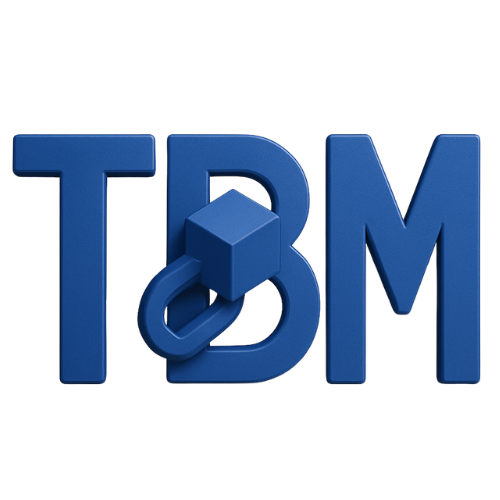Learn what Web3 domains are, how they work, and why .wallet, .blockchain, and .dao domains are becoming the most valuable digital real estate on the blockchain.
What Are Web3 Domains? Why .wallet, .blockchain & .dao Are the Future of Digital Real Estate
In the early days of the internet, owning a simple .com was like claiming a prime piece of land. Fast forward to today, and Web3 domains are the new digital land rush. Domains like .wallet, .blockchain, and .dao aren’t just web addresses—they’re your gateway to decentralized apps, digital payments, identity, and ownership.
These domains are not rented—they’re owned. They don’t just direct to a website—they connect wallets, host dApps, and power digital brands. Whether you’re building a startup, launching a DAO, or freelancing across borders, Web3 domains offer the leverage you need to own your presence in the decentralized internet.
Let’s explore why these domains matter, how they work, and how smart domain names like bookhotel.blockchain or nina.wallet are already unlocking real-world functionality.
1. Understanding the Shift from Web2 to Web3
From .com to .wallet: What’s Changed
In Web2, domains like yourname.com are leased from registrars. You pay annually, and your domain can be suspended or revoked. Web3 flips that script. Domains are minted on the blockchain, just like NFTs. They’re unique, ownable, and censorship-resistant.
Instead of relying on GoDaddy or Namecheap, you own your domain directly in your wallet. Domains like creativegenius.wallet or shopdirect.blockchain are minted once and yours forever.
Who Owns Your Domain in Web2 vs Web3?
- Web2 Domains: Controlled by centralized registrars. If they shut down, your domain vanishes.
- Web3 Domains: Stored in your crypto wallet, protected by private keys. You’re the sole owner—no renewals, no permissions needed.
It’s the difference between renting and owning in the digital world.
2. What Exactly Is a Web3 Domain?
How They Work on the Blockchain
A Web3 domain is an NFT-based identifier that maps to your wallet address. Instead of sending ETH to 0x4a3c…, someone can send it to jake.wallet. You can also use the domain to log into dApps, showcase NFTs, or host decentralized websites.
These domains are powered by services like:
- Unstoppable Domains (.wallet, .blockchain, .crypto)
- ENS (Ethereum Name Service) (.eth)
Each domain is a single asset stored on-chain, fully owned and transferable.
Key Differences from Traditional Domains
- No Renewal Fees – Pay once, keep forever.
- No Central Authority – Immutable, censorship-resistant.
- Web3 Utility – Payment address, login credentials, NFT showcase, site host.
- Interoperability – Works across wallets, DAOs, DeFi, and NFT platforms.
It’s like owning a username, bank account, and storefront—all rolled into one domain.
3. Why Web3 Domains Matter in a Decentralized Internet
Ownership, Control, and Identity
In Web2, you build audiences and assets on platforms you don’t own. With Web3 domains, your identity is yours:
- Your data
- Your assets
- Your access
A domain like alex.wallet gives you control across platforms—whether you’re connecting to a DAO, logging into a dApp, or receiving digital art.
Domains as Digital Wallets and Login Tools
A Web3 domain doesn’t just brand your wallet—it replaces long crypto addresses, simplifies payments, and enables password-free login.
Example:
- A freelancer named Nina uses nina.wallet to accept payments from global clients.
- A startup launches staychain.blockchain as a booking platform for decentralized hotels.
These aren’t just vanity URLs—they’re core components of the new internet experience.
4. Practical Use-Cases for Web3 Domains
Real-World Examples: Freelancers, Creators, Startups
Let’s walk through real-world applications:
- Creator: paintdrop.wallet sells NFT art, receives royalties, and showcases a portfolio.
- Freelancer: jasonwrites.wallet accepts tips, hosts a Web3 resume, and joins DAO gigs.
- Startup: bookhotel.blockchain offers peer-to-peer bookings with on-chain payments and reviews.
These domains aren’t just functional—they elevate trust, visibility, and independence.
Case Study: Decentralized Booking with bookhotel.blockchain
Here’s a deeper example:
- Guests visit bookhotel.blockchain, browse listings, and connect their wallet.
- Payments are sent directly to hosts.
- Smart contracts handle reviews, cancellations, and loyalty programs.
- The platform becomes a global, trustless ecosystem with no intermediaries.
This is how Web3 domains power business models, not just identities.
5. Web3 Domains as Digital Real Estate
Scarcity and Early Adoption
Just like .com domains exploded in value, early Web3 domains are being scooped up fast. Popular single-word and brandable names are already gone.
Scarcity is real, and use-case growth will only push values higher. Domains like:
- mintnft.wallet
- travelers.dao
- legalchain.blockchain
…aren’t just domain names—they’re assets.
Value Creation and Long-Term Utility
Web3 domains:
- Increase credibility
- Reduce onboarding friction
- Tie into NFTs, DeFi, and DAO communities
- Enable long-term brand and asset growth
They are the foundation of decentralized branding.
Exploring domains like these early could open big doors tomorrow.
6. Turning Web3 Domains Into Business Platforms
From a Simple Name to a Full-Scale dApp Gateway
One of the most underrated superpowers of Web3 domains is that they’re not just names—they’re platforms. A domain like shopverse.wallet isn’t just a crypto address. It can become:
- A decentralized storefront
- A payment portal
- An NFT loyalty membership hub
- A wallet-access-only blog
Here’s a practical example:
A creator sells exclusive digital art. Instead of using Etsy or Gumroad, they mint pieces as NFTs and list them under creativedrops.wallet. Buyers connect their wallets, purchase art, and unlock bonus content. All under one branded domain. No fees. No algorithms deciding what gets seen.
Domains become a hub for:
- NFTs
- Smart contracts
- Token-gated content
- Web3 messaging
This is what we mean when we say Web3 domains are digital infrastructure.
7. Creating Trust in a Trustless Environment
Why a Branded Domain Builds Instant Credibility
Web3 is trustless by design—but ironically, humans still crave trust signals. When someone sends crypto to alex.wallet rather than a 42-character string, they feel more confident.
For example:
- A freelance developer creates devx.wallet to receive project payments and showcase completed smart contracts.
- A journalist uses truthledger.wallet to post uncensorable articles via IPFS and receive reader tips.
Both identities are verifiable, memorable, and portable across the decentralized web.
In the Web3 space—where scams are a concern—a clean, branded domain signals you’re serious, committed, and here for the long haul.
8. The Power of Interoperability and Portability
Your Domain Works Across Chains, Wallets, and Platforms
Traditional domains are tied to websites. Web3 domains are multi-functional digital passports. They:
- Work with Ethereum, Polygon, and more
- Connect to wallets like MetaMask, Trust Wallet, Phantom
- Act as usernames in social apps like Lens Protocol or Farcaster
- Serve as contact handles in encrypted Web3 messengers
Example:
consultingdao.wallet could be a verified presence in a DAO forum, a public contact point in wallet messaging, and a payment address—all at once.
Want to build a multichain tool? A domain like yieldoptimizer.dao could work seamlessly across Ethereum, Arbitrum, and Avalanche, becoming a unified identity that adapts to a rapidly evolving decentralized ecosystem.
9. Domains as On-Chain Reputation Anchors
Your Domain Becomes Your Resume
Web3 identity is composable. That means everything you do—DAO voting, NFT trades, course completions—can be tied to your wallet and, by extension, your domain.
Imagine this scenario:
- You’re a designer contributing to a creative DAO.
- You’ve earned tokens, voted on proposals, minted art.
- All this lives on your wallet.
- You link it to artbuilder.wallet and set it as your Lens profile.
Now, anyone can view your history, credibility, and achievements with a click.
In Web3, your domain isn’t just a name—it’s your portfolio, identity, and public proof-of-work.
10. Future-Proofing with Early Adoption
Why Now Is the Time to Secure Your Space
We’ve seen this before—back in the 1990s with .com domains. Today, major brands own their .eth, .wallet, and .blockchain names. As Web3 grows, the demand for credible, clean, and brandable domains will skyrocket.
Here’s how early adopters are using them:
- storefront.blockchain: for decentralized commerce
- votetogether.dao: for social impact campaigns and tokenized activism
- greenfund.wallet: for receiving donations to environmental projects
These aren’t theoretical—they’re forming the Web3 brand layer. Owning a domain early is like owning premium land in a city that’s still under construction—but where value is guaranteed to rise.
Exploring domains like these early could open big doors tomorrow.
Conclusion
Web3 domains aren’t just a trend—they’re the foundation of the internet’s next chapter. From acting as wallet addresses to unlocking decentralized apps and building uncensorable platforms, these domains do more than identify you—they empower you.
If you’ve ever bought a .com domain to secure your brand, owning a Web3 domain like .wallet, .dao, or .blockchain is the same idea, multiplied by blockchain-powered functionality and permanent ownership.
Whether you’re:
- A creator wanting a direct channel to their fans
- A freelancer looking to build their brand without intermediaries
- A founder launching a new startup with decentralized infrastructure
…your Web3 domain is your digital headquarters. And just like prime real estate, the best domains are already being claimed.
Exploring domains like these early could open big doors tomorrow.
FAQs
1. Are Web3 domains the same as traditional website domains?
Not quite. While traditional domains (.com, .net) point to websites on centralized servers, Web3 domains live on the blockchain. They also function as wallet addresses, identity tools, and more.
2. What happens if I lose access to my wallet with a Web3 domain?
If you lose your wallet and don’t have your recovery phrase, you lose access to the domain. That’s why it’s critical to back up your seed phrase securely.
3. Can I host a website on a Web3 domain?
Yes. You can host decentralized websites using protocols like IPFS and link them to your Web3 domain. It’s a censorship-resistant, blockchain-based alternative to Web2 hosting.
4. What are some good business ideas using Web3 domains?
Examples include:
- bookme.wallet for a freelancer portfolio
- fundtech.dao for a DAO investment group
- rarebooks.blockchain for a decentralized book marketplace
5. How can I buy a Web3 domain?
You can register one through platforms like Unstoppable Domains or ENS by connecting your crypto wallet and searching for available names.
#Web3, #Web3Domains, #DigitalRealEstate, #CryptoWallet, #Blockchain, #DAOs, #Web3Identity

